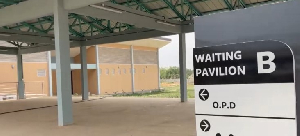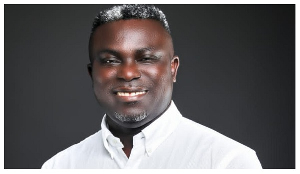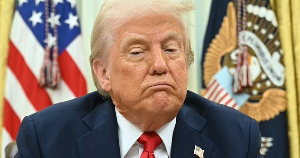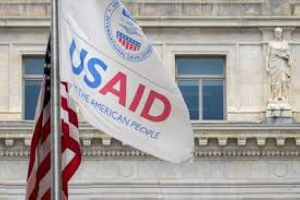In a healthcare system that often struggles to meet the needs of its most vulnerable citizens, decisive leadership can spark meaningful change. On this note, I am compelled to commend the swift and impactful action taken by Prof. Samuel Kaba Akoriyea, the Director-General of Ghana Health Services, in response to my recent article titled Unjust Practices in Healthcare:
The unfortunate reality of toilet fees in Ghana’s national hospitals. Published on Monday 24/03/2025 in the Daily Graphic and online media.
The article highlighted an ongoing injustice—the imposition of toilet fees in national hospitals, a practice that placed undue financial burdens on already struggling patients.
For many Ghanaians, these fees were more than an inconvenience; they represented yet another barrier to equitable healthcare. The response to the article was overwhelming, drawing widespread public attention and sparking necessary conversations. However, what truly stands out is the action taken by Prof. Akoriyea.
Shortly after the article’s publication, Prof. Akoriyea reached out to discuss the issue further. During our conversation, he assured me of his commitment to addressing this matter, and he delivered on that promise with remarkable speed.
He has issued a directive to all Ghana Health Service facilities to cease charging toilet fees, a bold move that aligns with the governing party’s "reset agenda" for the health sector.
This decisive action not only demonstrates Prof. Kaba’s responsiveness to public concerns but also his dedication to creating a healthcare system that prioritizes dignity and accessibility. By eliminating toilet fees, the Ghana Health Service has taken a significant step toward alleviating unnecessary financial stress on patients, particularly those from disadvantaged backgrounds.
Leadership is often measured by the ability to listen, empathize, and act decisively. Prof. Kaba has shown that he embodies these qualities. His actions reflect a deep understanding of the challenges faced by ordinary Ghanaians and a commitment to addressing them head-on. In a time when many issues seem to linger without resolution, this swift response serves as a beacon of hope and a model for other leaders to follow.
The decision to abolish toilet fees is more than a policy change; it is a reaffirmation of the Ghana Health Service’s commitment to humane and equitable healthcare.
It is a reminder that our healthcare system can and should evolve to meet the needs of all citizens, without discrimination or undue burden.
As we celebrate this milestone, it is my hope that this momentum will carry forward into addressing other systemic issues within the health sector. Prof. Akoriyea’s leadership has set a precedent, and with continued collaboration between stakeholders, we can envision a future where healthcare in Ghana becomes a model of accessibility and fairness.
I extend my heartfelt gratitude to Prof. Akoriyea for his swift and impactful response. His leadership gives us renewed faith in the ability of public officials to act in the best interests of the people. Let this be a turning point, a reminder that change is possible when leaders listen and act decisively.
As citizens, we must also remain vigilant and engaged, holding our leaders accountable while offering constructive dialogue to foster progress. Together, we can create a healthcare system that truly serves everyone, without exception.
Opinions of Friday, 4 April 2025
Columnist: George Afrifa Yamoah















